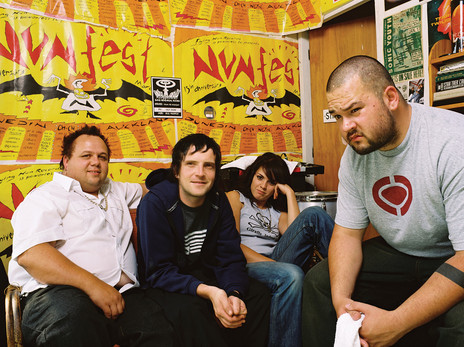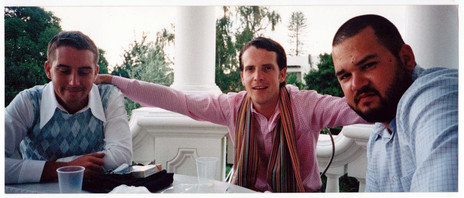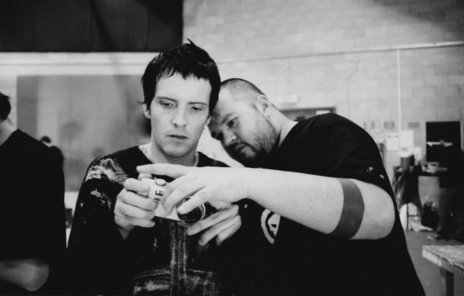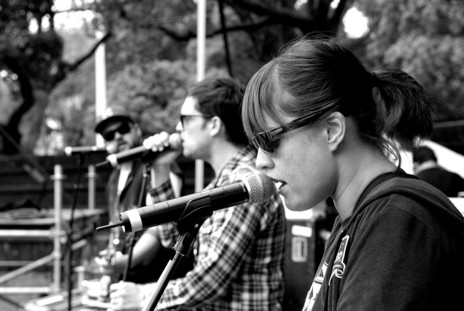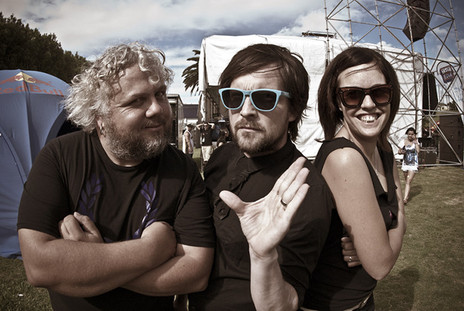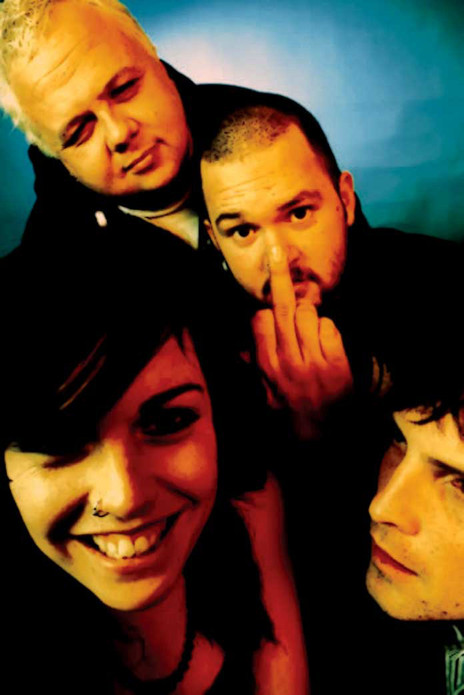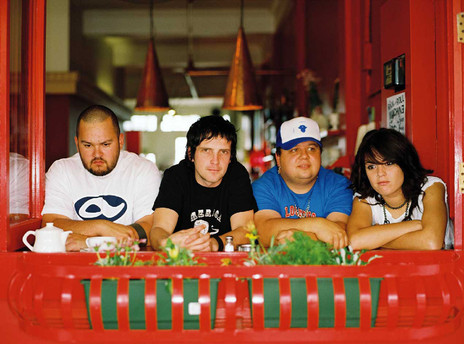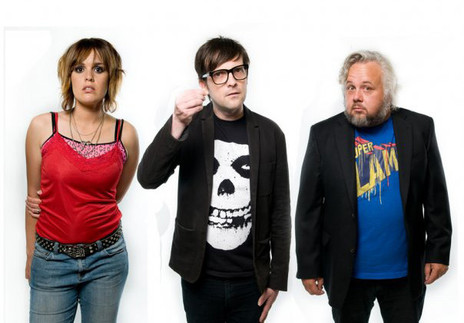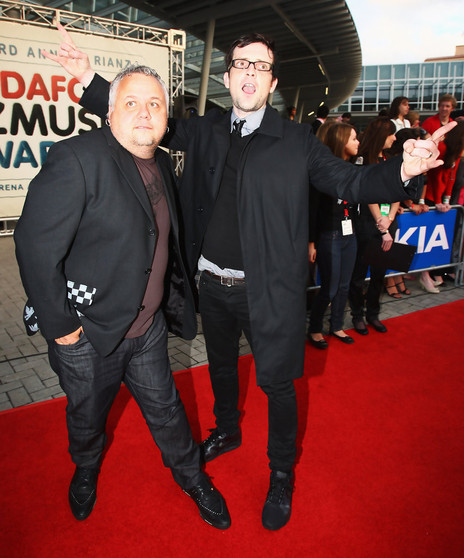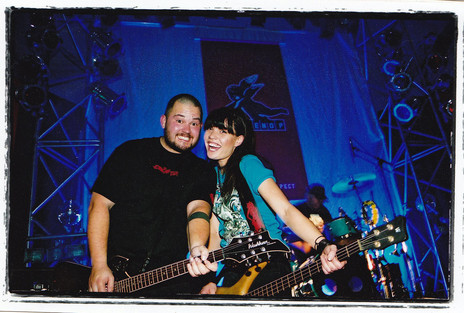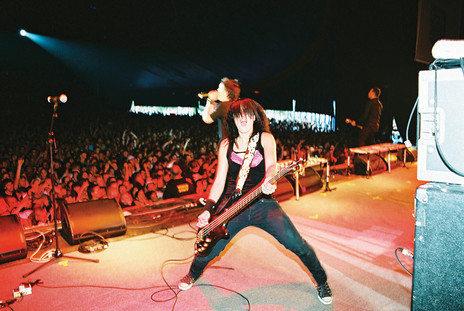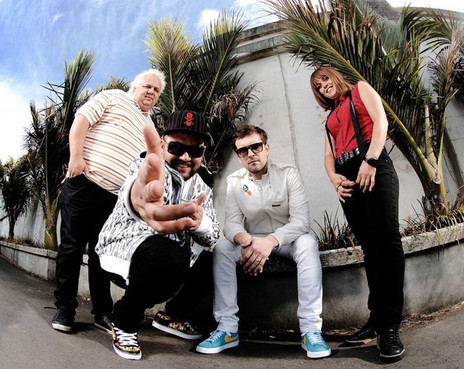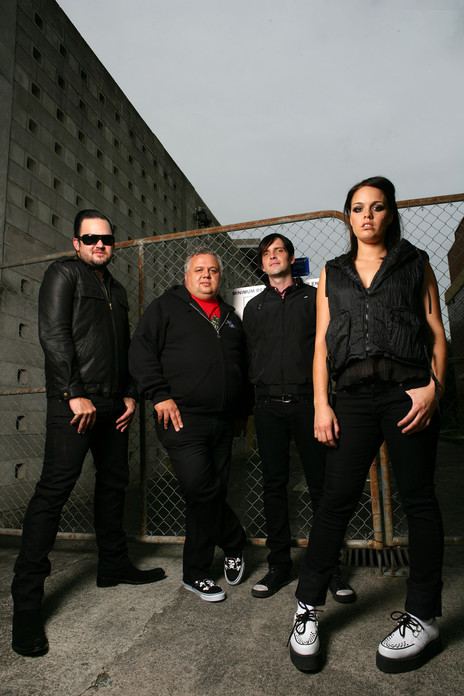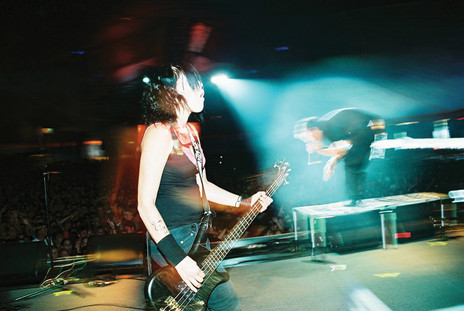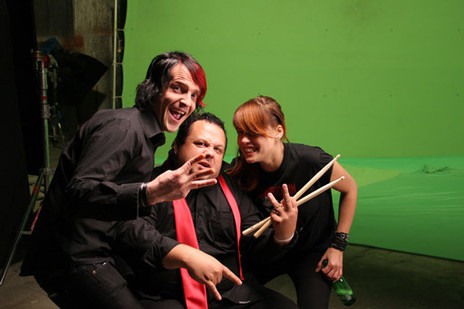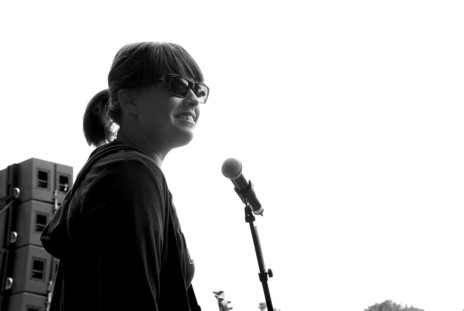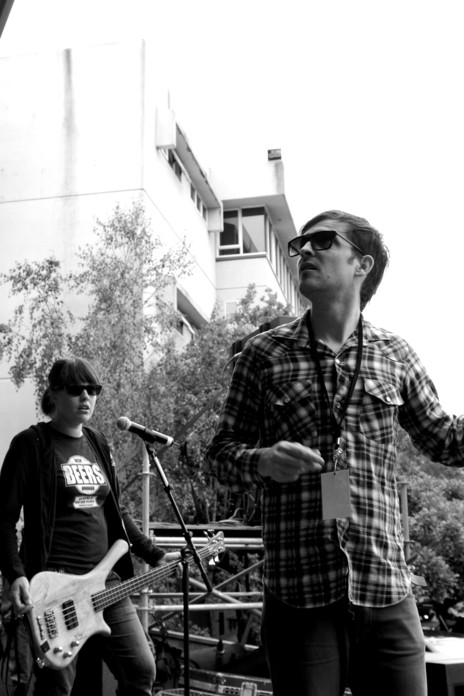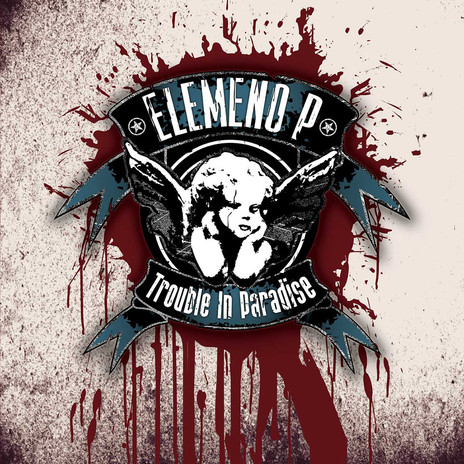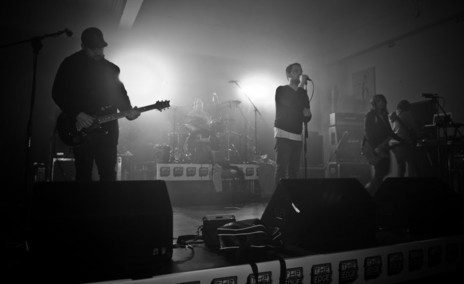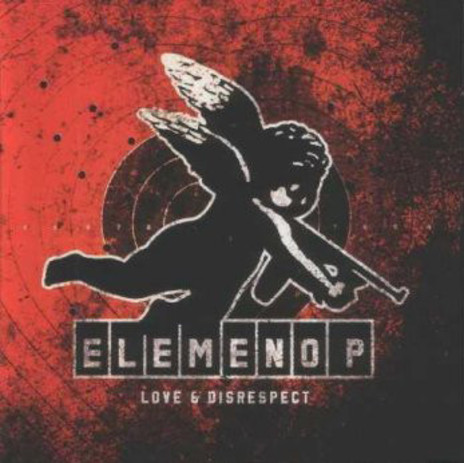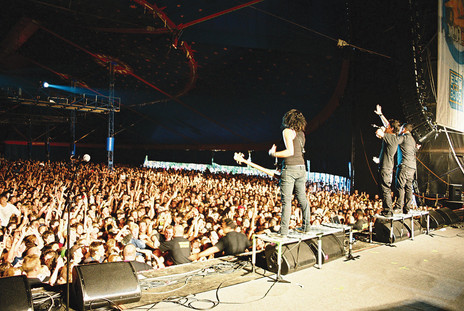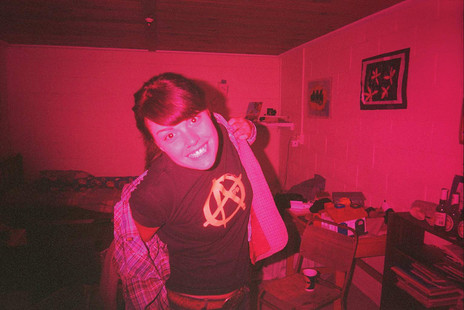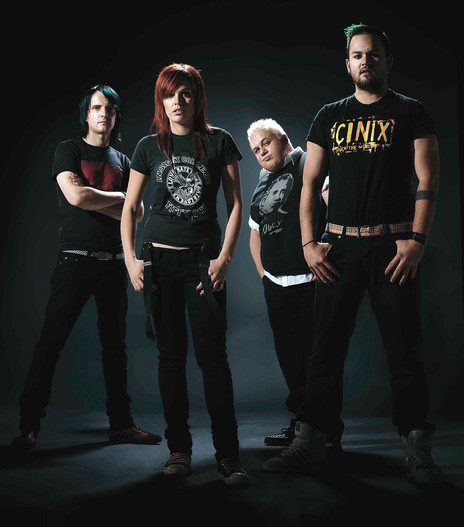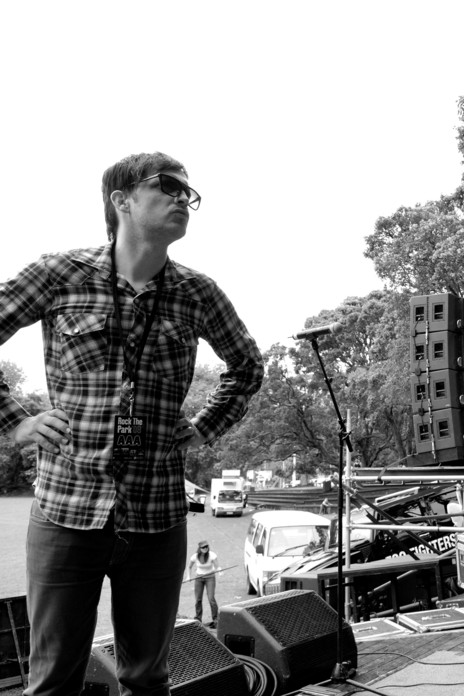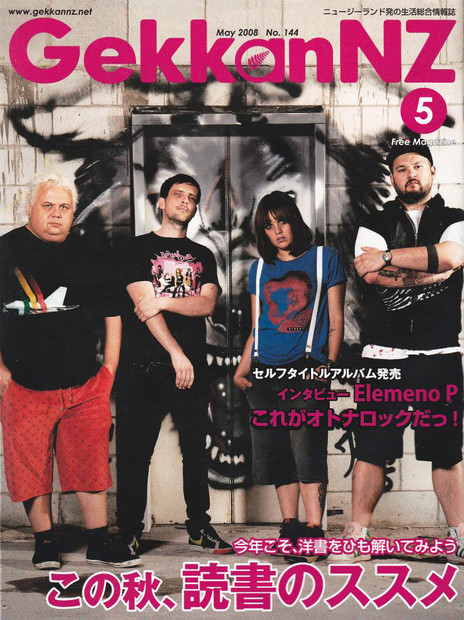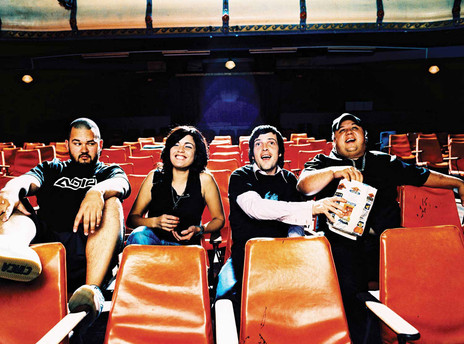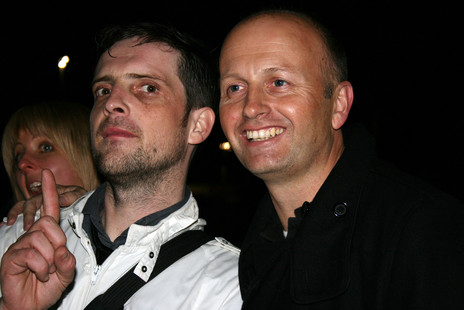It was there that Gibson cut his teeth as a drummer, holding down the seat for the Queen City Big Band, Nickel and Elephant. Before picking up the microphone in a band, his distinctive baritone voice was put to use as one half of the breakfast show on George FM. The attraction to the limelight also transitioned to the screen, where he appeared in numerous commercials and as the character Nev in low budget horror The Locals, from director Greg Page. The Elemeno P song ‘Christmas’ also appears on the film’s soundtrack.
Between producing music for TVNZ, including the theme song to Montana Sunday Theatre, Pilbrow played bass with the jazz-rock band Relaxomatic Project, alongside guitarist Dan Sperber from The New Loungehead and drummer Luke Casey of Eye TV. He also contributed to the debut album from pop artist K'Lee, a stepping stone in his longstanding songwriting career.
Becoming flatmates, the pair decided to transform their living room into a studio, borrowing equipment from friends and using a basic Pro Tools rig. According to an interview with NZ Musician magazine (June/July 2003), the duo was inspired to get serious with music after hearing the Shania Twain song ‘From This Moment’. The plan was to record three demos. With producer Sam Gibson at the helm, the initial living room sessions yielded ‘Fast Times in Tahoe’, ‘Every Day's a Saturday’ and ‘Fast Pop Song’ (later called ‘I Don’t Know’).
“I played drums on it. I sang ’cause there was no one else there to sing. That was basically the only reason I became a singer, because I just fell into it. Justyn played bass and guitar, and after we made the demo we thought, ‘This is cool, this feels good, let’s start a band’.”
“I just strolled into this record company with the demo in my pocket and said, ‘I’m here to see the A&R guy.’”
An initial placeholder name, Pookie, was given to the project, though was ultimately replaced with the off-the-cuff suggestion LMNOP from Sam Gibson (changed phonetically to Elemeno P).
Yet to assemble a complete band and play a live show, the pair boldly went about delivering their three-song demo to various record companies. Gibson recalls, “I just strolled into this record company with the demo in my pocket and said, ‘I’m here to see the A&R guy.’ They were all confused because I didn’t have an appointment, but we basically forced our way into the hands of the right people.”
With no response for eight months the pair had more or less given up on the project, when they were contacted by Festival Mushroom Music out of the blue. Their offer was soon followed by another from Universal Music.
“We were thinking, ‘this is too good to be true. When are they going to say by the way there’s a catch?’ But they didn’t.”
The band signed a P&D (pressing and distribution) deal with Universal for the release of their debut album and were quickly thrown into their first gig, supporting US pop-punk band Sum 41.
The remaining members were rallied. Taranaki-bred Scotty Pearson, who put his solid drumming style to use with a number of local bands, was recruited. The rhythm section was solidified by Paul Gerring on bass, though his presence was short-lived. After the release of ‘Fast Times in Tahoe’ he was replaced by Lani Purkis from punk-rock band Foamy Ed. She proved to be a valuable addition, also leading a large chunk of the band’s signature group backing vocals. In the gap between bassists, and for the sake of having a bass player in the video for ‘Nirvana’, Gibson’s longtime friend Julian Currin was enlisted temporarily.
‘Fast Times in Tahoe’ was the song that put the band on the radar. In a time swamped with retro garage-rock, the song stood apart with its pop slant, inescapable sing-a-long chorus and Gibson’s almost spoken word style of singing. It spent three weeks in the New Zealand Singles Chart, peaking at No.32.
A flurry of high profile gigs followed, including the Summer Jam tour alongside Good Charlotte, and the True Colours Music Festival. The band’s instant success didn’t rub off well on fellow musicians that had been working tirelessly to try and get the same traction.
“That’s why we got a lot of shit in the beginning,” says Gibson, “... because we jumped the queue. I know we jumped the queue, but I never felt guilty because I knew we’d all paid our dues. I’ve worked my arse off in probably 15 bands before this one, the same with Lani, the same with [drummer] Scotty Pearson – holy hell, that guy’s played in a million bands, the same with Justyn.”
With a record deal in place and a solid line-up, the four-piece began honing their live show and writing more material for their debut album. Parts of tracks were lifted from the original living room recording sessions, however the bulk of the album was recorded across Auckland’s Revolver and York Street studios with Sam Gibson and friend Nic Manders as producers.
As Sam Gibson relocated to a studio in England for work, the second half of the tracking was produced by Pilbrow. Sam Gibson was later enlisted to mix the record, setting up camp in Nashville, Tennessee. He also set up a mastering deal with big name US engineer Howie Weinstein, known for his work with Nirvana, Ramones and Public Enemy. Following two separate trips to the States, the group returned to New Zealand with Love & Disrespect.
The album was released on 4 July 2002, making its debut at No.1 on the NZ Album Chart.
Ahead of the album, four singles were released: ‘Fast Times in Tahoe’, ‘Nirvana’, ‘Urban Getaway’ and ‘Everyday’s a Saturday’. The album was released on 4 July 2003, making its debut at No.1 on the NZ Album Chart. Drawing comparisons to Weezer and The Exponents, Love & Disrespect overshot Universal’s initial sales expectations and sold around 45,000 copies, earning a triple platinum certification.
Despite the very strong sales and three NZ Music Award nominations, the critical response wasn’t quite as positive. Russell Baillie said in a two star review for the NZ Herald, “It's infectious for sure, but only if it had some personality to match all the positive energy, then it might well be on to something.”
The band supported the album with an extensive 32-date tour around the country.
Off the back of Love & Disrespect the band gained the management support of Teresa Patterson of CRS Music Management and Universal were happy to pay for international production on their second album.
The band decided to work with New Jersey punk rock producer Sal Villanueva, credited for work with bands Taking Back Sunday and Thursday, described by Gibson as “a crazy man”. Upon his arrival to New Zealand the band spent two solid months in pre-production in their Grey Lynn practice room. Together with Villanueva the band whittled more than 30 original songs down to 14 or 15.
The venue chosen for recording was Melbourne’s Sing Sing Studios, chosen for its extensive collection of gear, and to escape distractions back in Auckland. Gibson told NZ Musician magazine that once established at the studio their work rate “increased to 12 and even 14-hour days for the full six weeks they were there.” Of the 15 tracks, 11 made the cut.
Keyboardist Godfrey de Grut (another former member of The New Loungehead) was employed to play keys on the record. He became a rotating member of the band’s live line-up.
Following the same formula as Love & Disrespect, a run of four singles preceded the album’s release: ‘11:17’, ‘Burn’, ‘One Left Standing’ and ‘You Are’. The album also included a cover of The Verlaines’ signature track ‘Death and the Maiden’.
Trouble In Paradise was released on 24 November 2005, debuting at No.2 on the local album charts. With the rise of digital downloads and decline of record sales, the album fell short of Love & Disrespect. Much like its predecessor, Trouble In Paradise retained a fun-loving party attitude, characterised by fast-paced, snappy songs, up-front group vocals and big, melodic choruses. This time the response was more confident, the production and improved playing in particular gaining praise.
Off the back of the record the band won Best Group at the 2006 New Zealand Music Awards out of four nominations. In 2007 they were invited to perform at the South by Southwest festival (SXSW) in Austin, Texas.
After coming across some early demos and appreciating their freshness and energy, Gibson realised that some of the raw magic was being lost in the drawn out recording process. For their third release, the band opted for a radically different approach.
“The first and second records were done in quite a similar fashion – you’d work up some songs, you'd practise and practise and practise, you’d go into preproduction and really, really hone them, you’d go into a studio that’d cost quite a bit of money, you’d rush through the album in maybe three weeks.”
Instead of enlisting a big-name producer and hiring a flashy studio, the band began writing an album in their own space.
They opted to set up their own Pro Tools-based studio from scratch; Pearson used his expertise as a master builder to convert an unused space at Mt Eden’s The Lab studio. On top of Pilbrow’s own inventory of recording equipment, the band bought and rented a bunch of gear. The band also employed Dan Rejmer, who engineered the Trouble In Paradise record alongside Sal Villanueva, and MAINZ student Anna Riley as an assistant engineer.
Four months from July until October were spent creating the record including studio construction and writing the songs from scratch. Normal working days would start with the band jamming ideas that Gibson and Pilbrow had come up with and if things were starting to work the band would attempt a take.
“Some of them were written and recorded on the same day and it was recorded with the bass, drums and guitars all together in one take. That was the goal, for the three of us to play together.”
The album was mixed in Chapel Lane studios by Love & Disrespect collaborator Sam Gibson. The free spirited nature of the recording overflowed into this process with Gibson finishing off lyrics up until the eleventh hour.
The self-titled album was released on 26 May 2008. Stylistically it was a much more varied record than their previous releases, including the more dominant keyboard of Godfrey de Grut. The album peaked at No.3 on the New Zealand Album Chart.
The album was supported by The Rock n Roll Caravan Summer Tour with Supergroove and Deja Voodoo.
During Elemeno P’s set at the 2009 Big Day Out it was announced that founding member Justyn Pilbrow would leave the band to seek songwriting opportunities in New York. The remaining members continued to perform live, with Dave Goodison, formerly of Garageland and the City Newton Bombers, standing in on guitar.
With one of the band’s key songwriters out of the picture, momentum naturally slowed. The band members began to focus on different career paths. Gibson took up several opportunities as an MC and launched the band merchandise website closet.co.nz. Pearson joined Pop Science, the house band at York Street Recording Studio, and Purkis contributed to the debut solo album of Kurt Shanks from Stellar*.
In January 2011 the band was announced as a headline act for the annual Christian Parachute Music Festival, replacing US rock band Flyleaf. The announcement prompted a social media backlash arguing that the band weren’t ‘Christian enough’. They played regardless.
Pilbrow returned to the band in late 2011 for a performance to mark the 2011 Rugby World Cup. It was followed with a relatively unnoticed new song called ‘Slow Down Boy’, released for free download via social media. The band also reformed in 2013 for the Jim Beam Homegrown festival in Wellington.
Post script
Dave Gibson is currently based in Brooklyn, New York performing in alt-country seven-piece Streets of Laredo with his brother Dan and wife Sarahjane. The band are signed with Canadian independent record label Dine Alone.
Justyn Pilbrow continues to write music. His latest projects include composition for US pop artist Halsey and production work for Brooklyn band Wet. Closer to home he has worked with Ruby Frost on her Volition album, Zowie on the singles ‘Toss The Coin’ and ‘Broken Machine’ and Chelsea Jade.
Lani Purkis plays in electro-punk band Delete Delete alongside Kurt Shanks and Chris van de Geer of Stellar*.
Scotty Pearson is the studio and touring drummer for Jamie McDell and works as a master builder in his own company, Scotty Construction.
